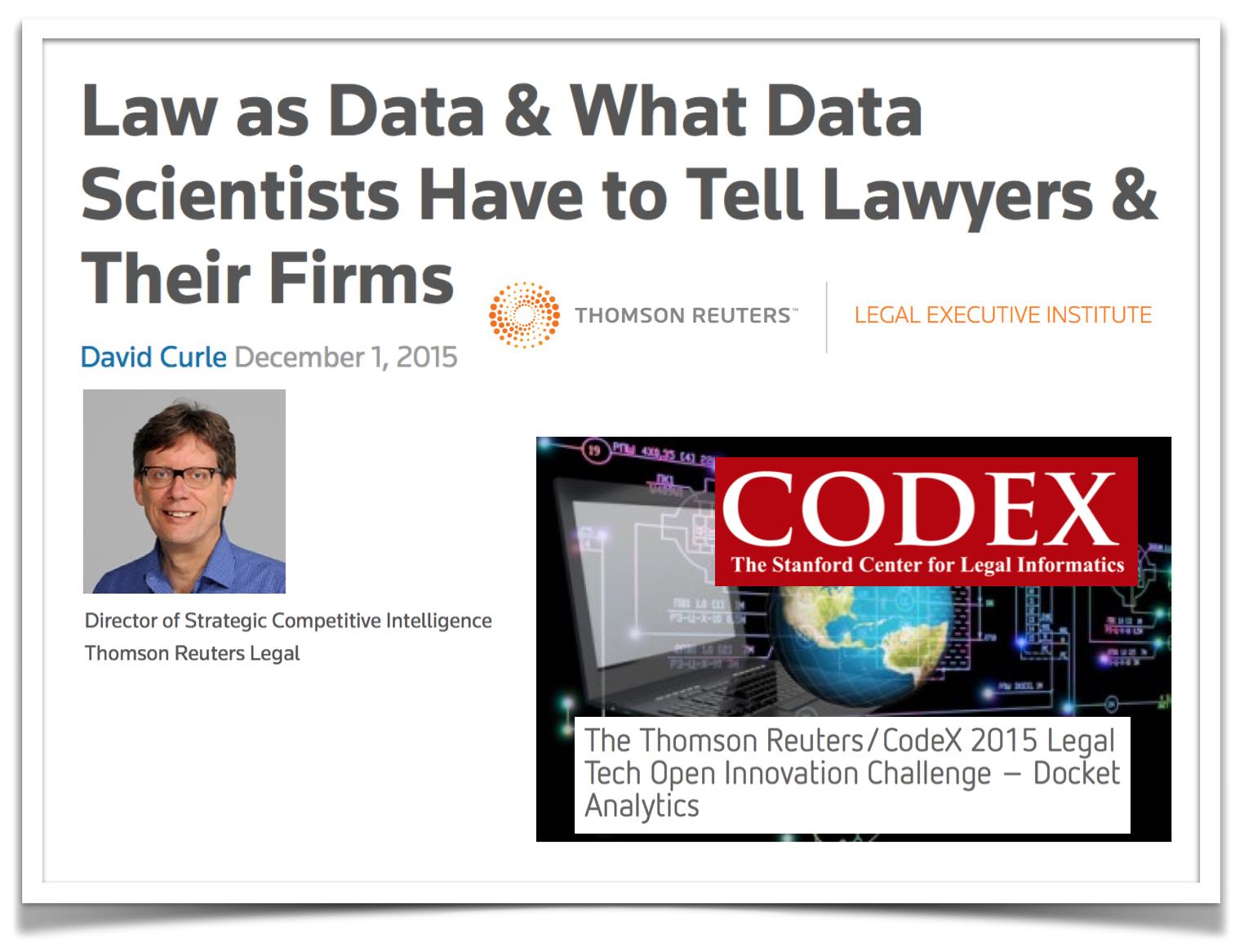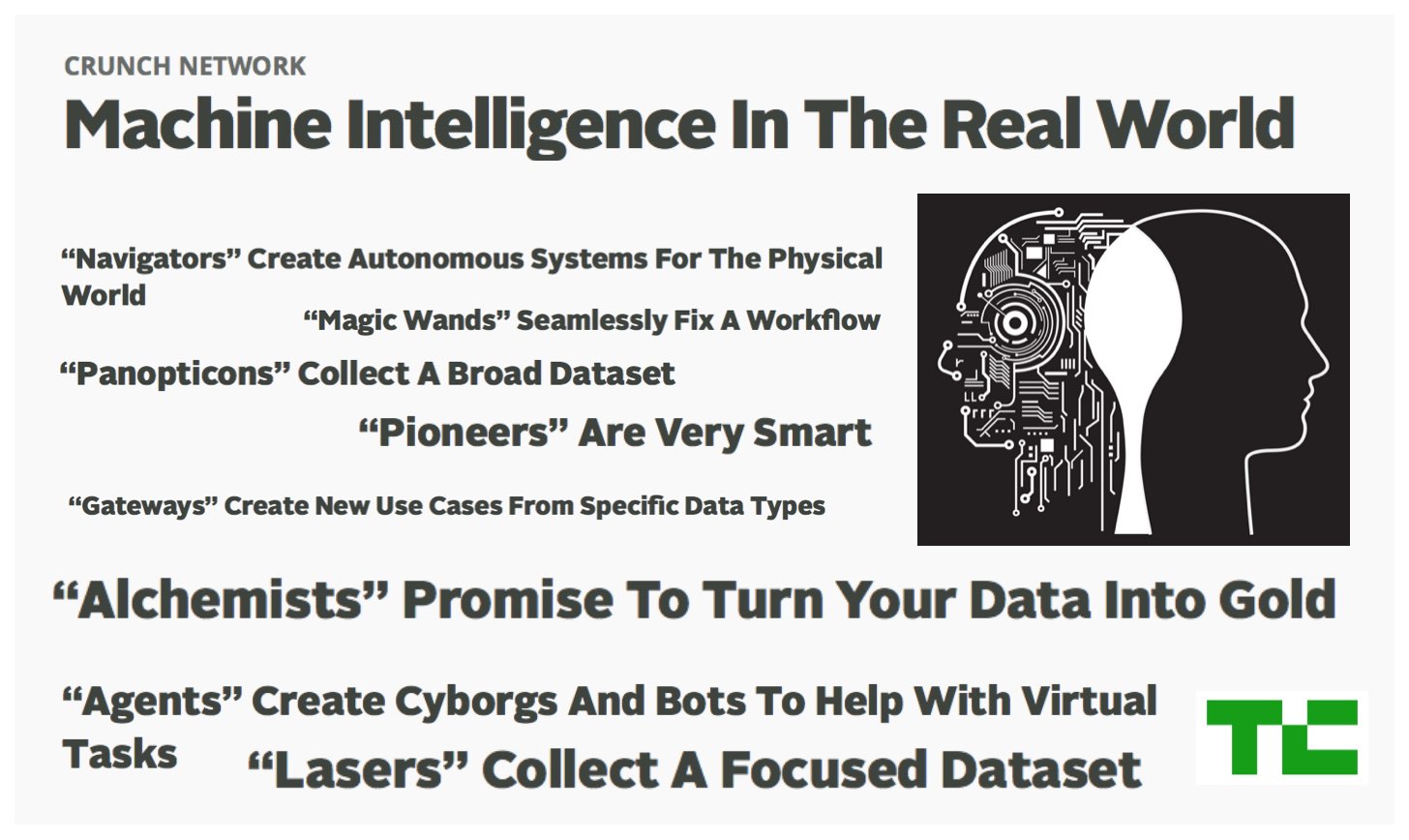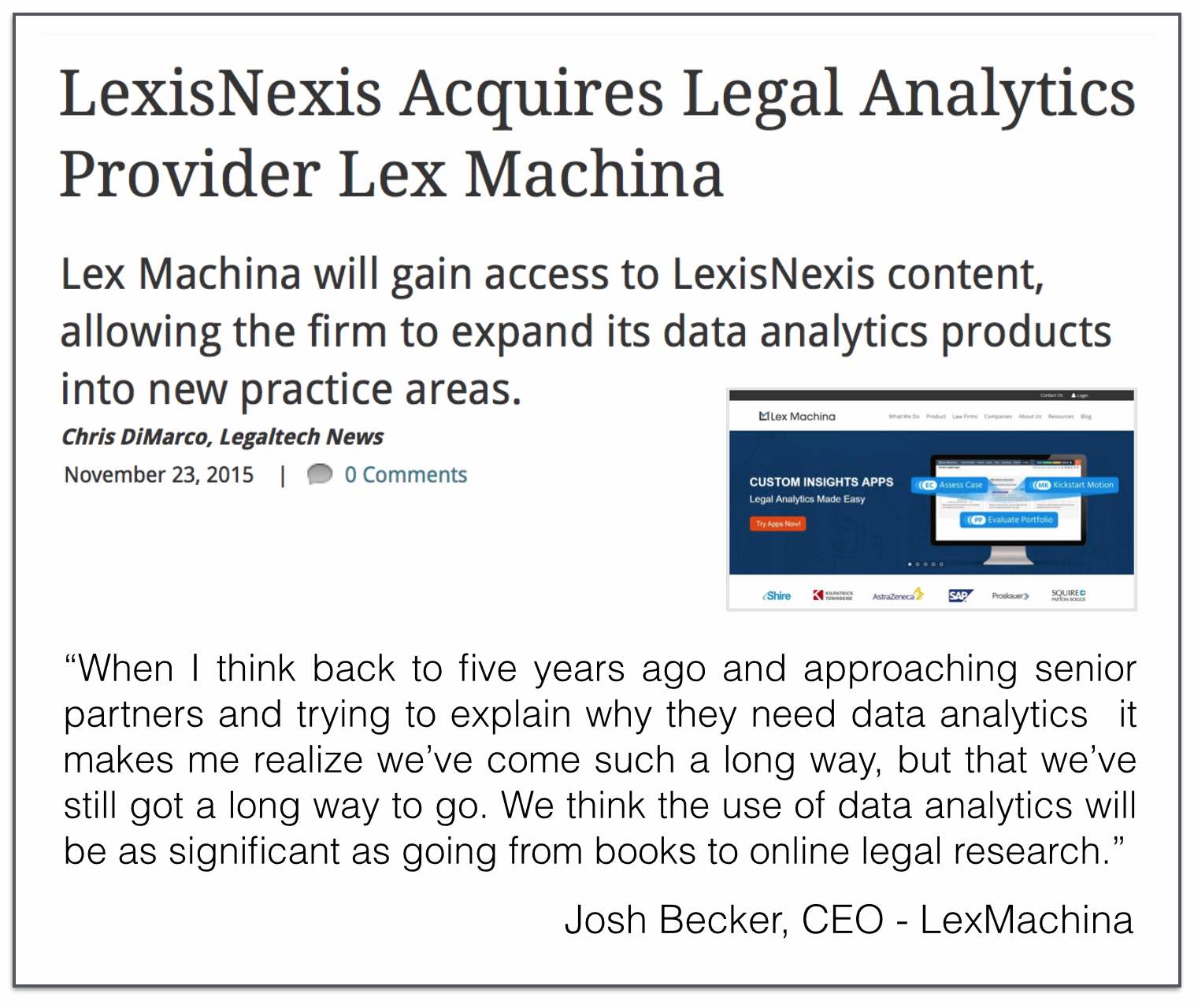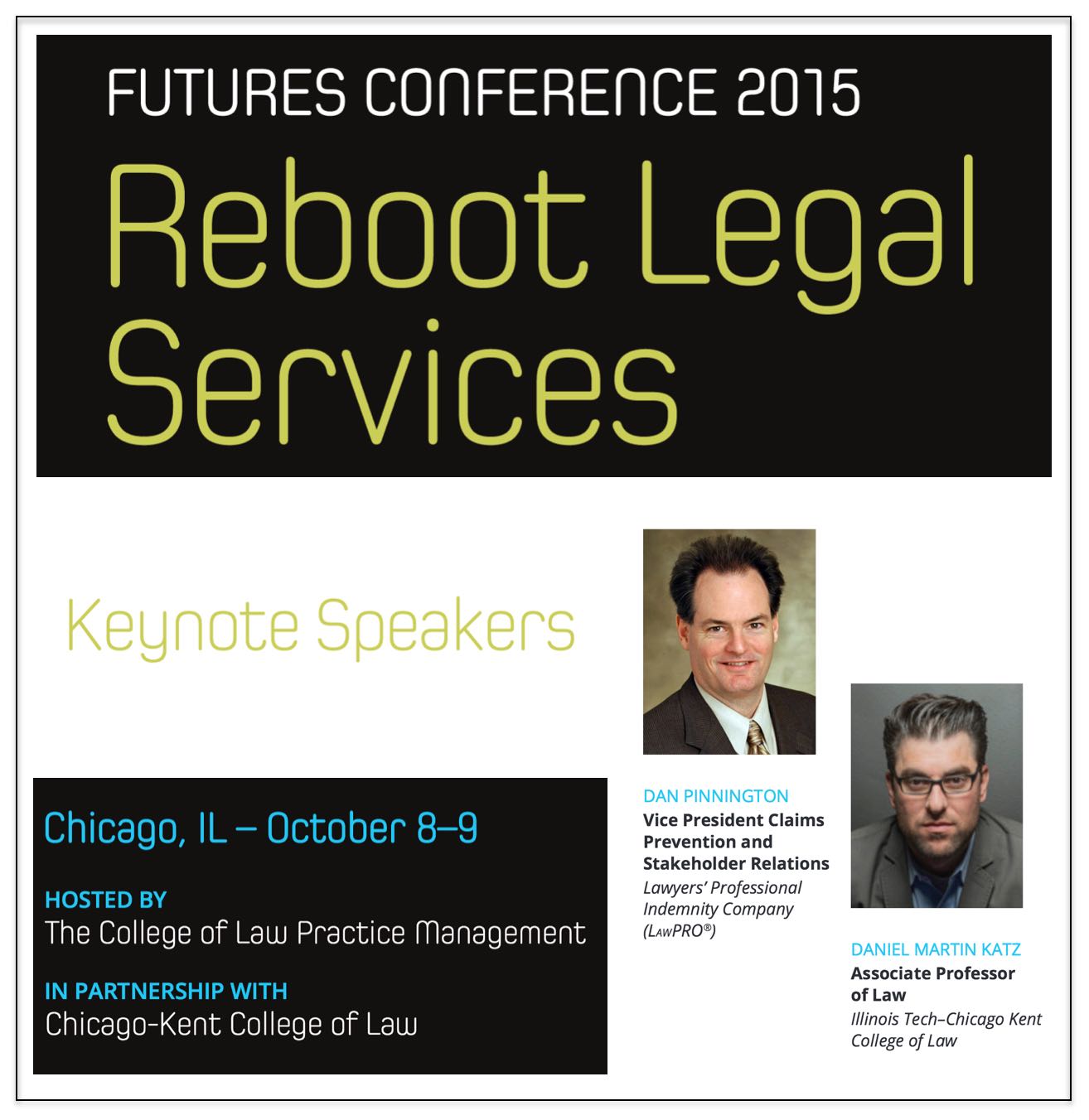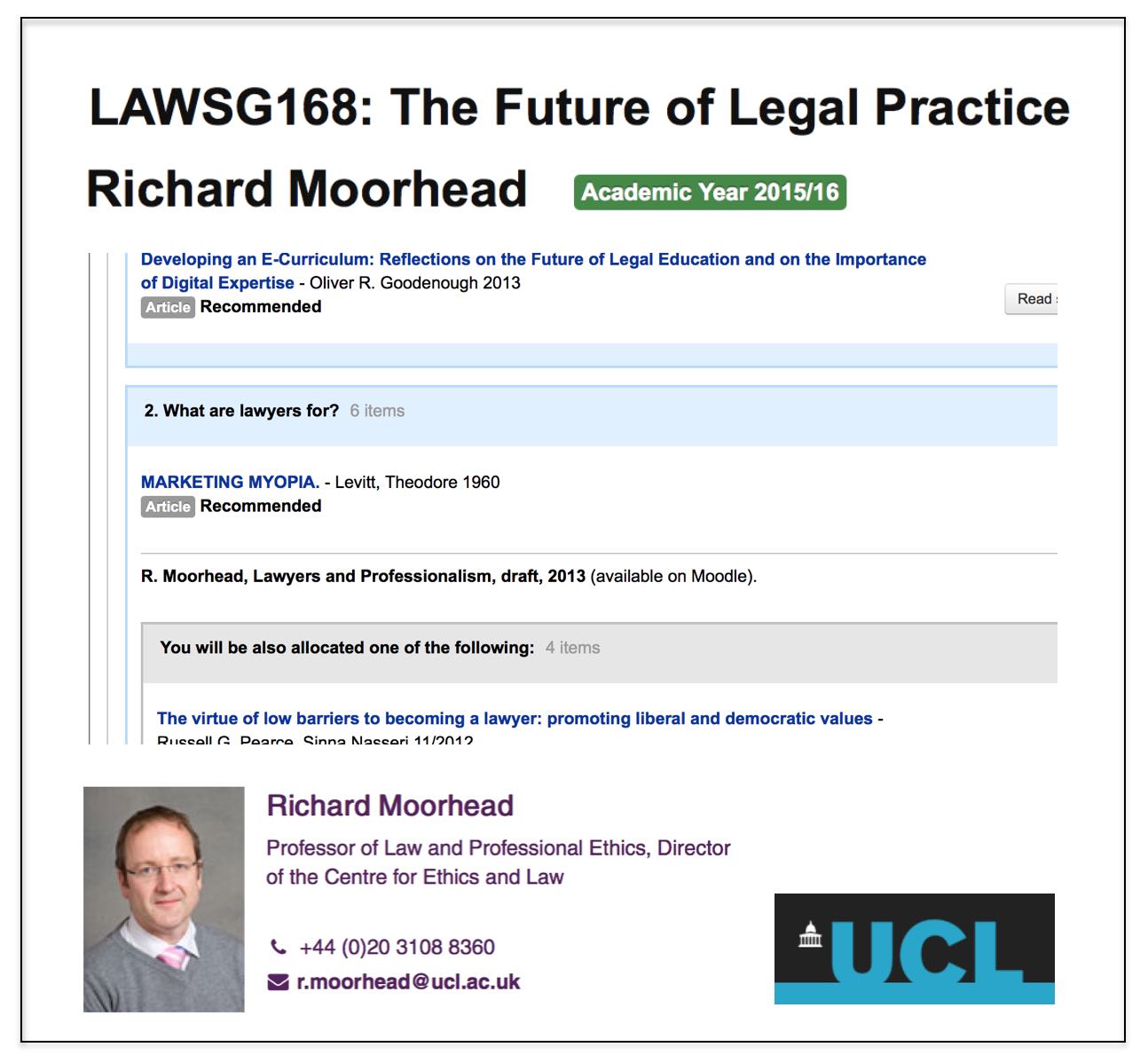 HT: RC Richards
HT: RC Richards
Tag: quantitative legal prediction
Quantitative Methods for Lawyers – Course Materials – Professor Daniel Martin Katz
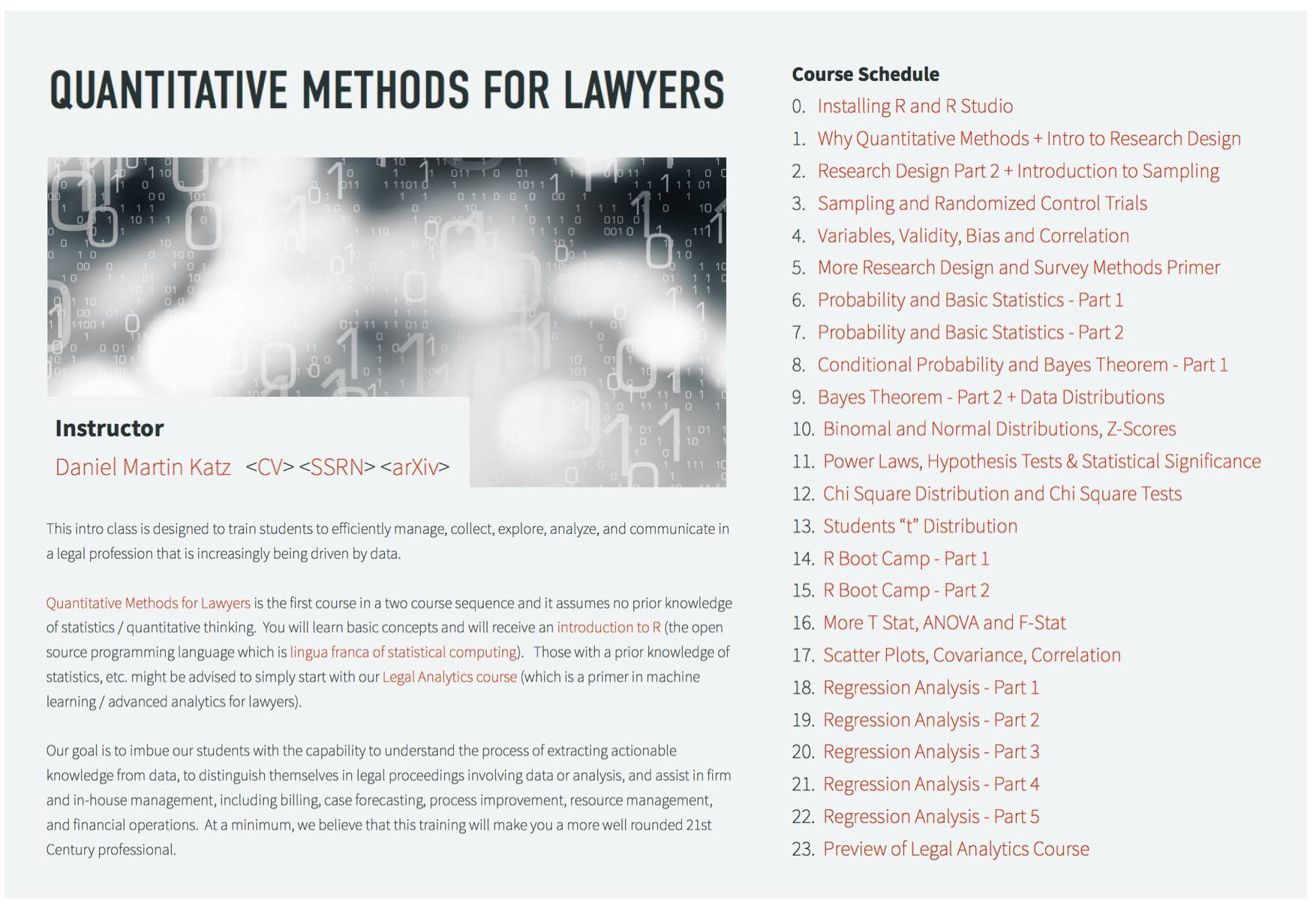 Quantitative Methods for Lawyers is the first course in a two course sequence and it assumes no prior knowledge of statistics / quantitative thinking. You will learn basic concepts and will receive an introduction to R (the open source programming language which is lingua franca of statistical computing). Those with a prior knowledge of statistics, etc. might be advised to simply start with our Legal Analytics course (which is a primer in machine learning / advanced analytics for lawyers that I teach with Michael Bommarito).
Quantitative Methods for Lawyers is the first course in a two course sequence and it assumes no prior knowledge of statistics / quantitative thinking. You will learn basic concepts and will receive an introduction to R (the open source programming language which is lingua franca of statistical computing). Those with a prior knowledge of statistics, etc. might be advised to simply start with our Legal Analytics course (which is a primer in machine learning / advanced analytics for lawyers that I teach with Michael Bommarito).
Google Just Open Sourced TensorFlow, Its Artificial Intelligence Engine (via Wired)
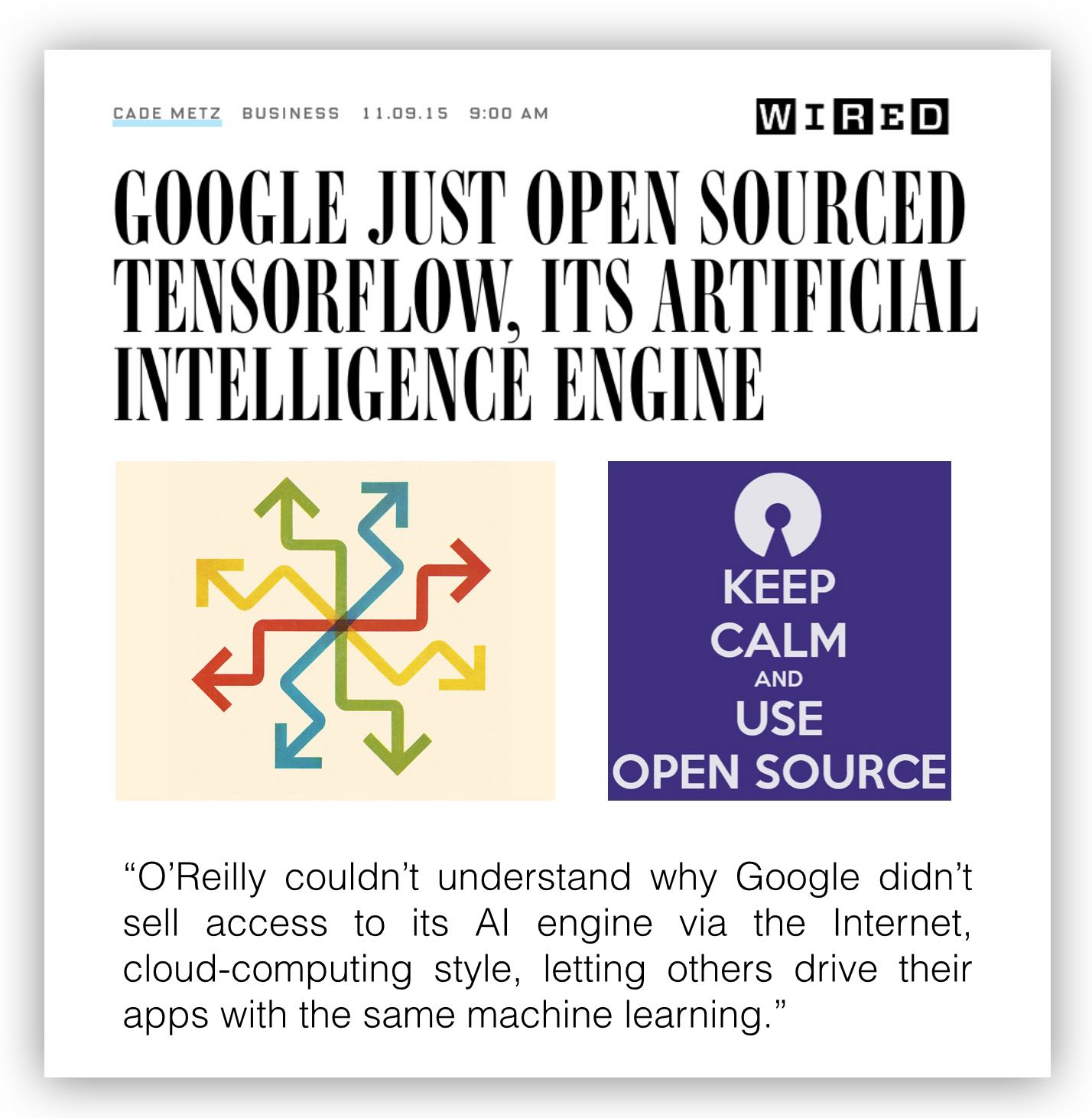 Obviously this move is pretty significant for those trying to sell machine learning in a SAAS style model / machine learning as a service (ML_AAS). Together with the significant amount of ML technology that is already in the opensource ecosystem – this will put more pressure on customization / configuration around problems with a much smaller premium on having access to certain forms of base models/algorithms.
Obviously this move is pretty significant for those trying to sell machine learning in a SAAS style model / machine learning as a service (ML_AAS). Together with the significant amount of ML technology that is already in the opensource ecosystem – this will put more pressure on customization / configuration around problems with a much smaller premium on having access to certain forms of base models/algorithms.
LexPredict – Empowering the Future of Legal Decision Making
LexPredict is an enterprise legal technology and consulting firm, specializing in the application of best-in-class processes and technologies from the technology, financial services, and logistics industries to the practice of law, compliance, insurance, and risk management.
We focus on the goals of prediction, optimization, and risk management to enable holistic organizational changes that empower legal decision-making. These changes span people and processes, software and data, and execution and education.
Law Firm COO & CFO Forum Pre-Conference Workshop on Big Data / Legal Analytics / Legal Informatics
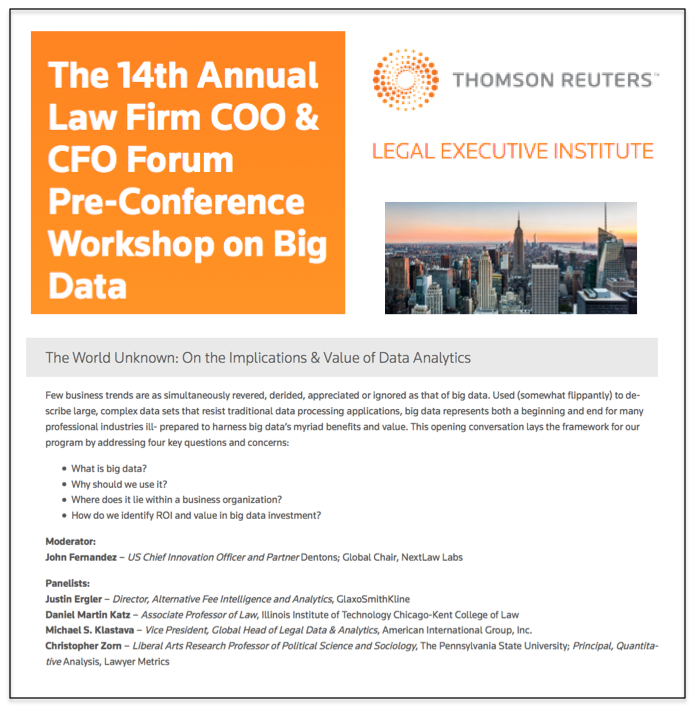 Yesterday I had the pleasure of participating in the Thomson Reuters Law Firm COO & CFO Forum Pre-Conference Workshop on Big Data. The half day workshop explored various way that law firms and outside counsel can use data to be better lawyers and run better businesses.
Yesterday I had the pleasure of participating in the Thomson Reuters Law Firm COO & CFO Forum Pre-Conference Workshop on Big Data. The half day workshop explored various way that law firms and outside counsel can use data to be better lawyers and run better businesses.
Here is the information for my panel (below) and the full program is located here.
Few business trends are as simultaneously revered, derided, appreciated or ignored as that of big data. Used (somewhat flippantly) to describe large, complex data sets that resist traditional data processing applications, big data represents both a beginning and end for many professional industries ill- prepared to harness big data’s myriad benefits and value. This opening conversation lays the framework for our program by addressing four key questions and concerns:
- What is big data?
- Why should we use it?
- Where does it lie within a business organization?
- How do we identify ROI and value in big data investment?
Moderator:
John Fernandez – US Chief Innovation Officer and Partner Dentons; Global Chair, NextLaw Labs
Panelists:
Justin Ergler – Director, Alternative Fee Intelligence and Analytics, GlaxoSmithKline
Daniel Martin Katz – Associate Professor of Law, Illinois Institute of Technology Chicago-Kent College of Law; Chief Strategy Officer, LexPredict
Michael S. Klastava – Vice President, Global Head of Legal Data & Analytics, American International Group, Inc.
Christopher Zorn – Liberal Arts Research Professor of Political Science and Sociology, The Pennsylvania State University; Principal, Quantitative Analysis, Lawyer Metrics
PLI Corporate Counsel Institute 2015
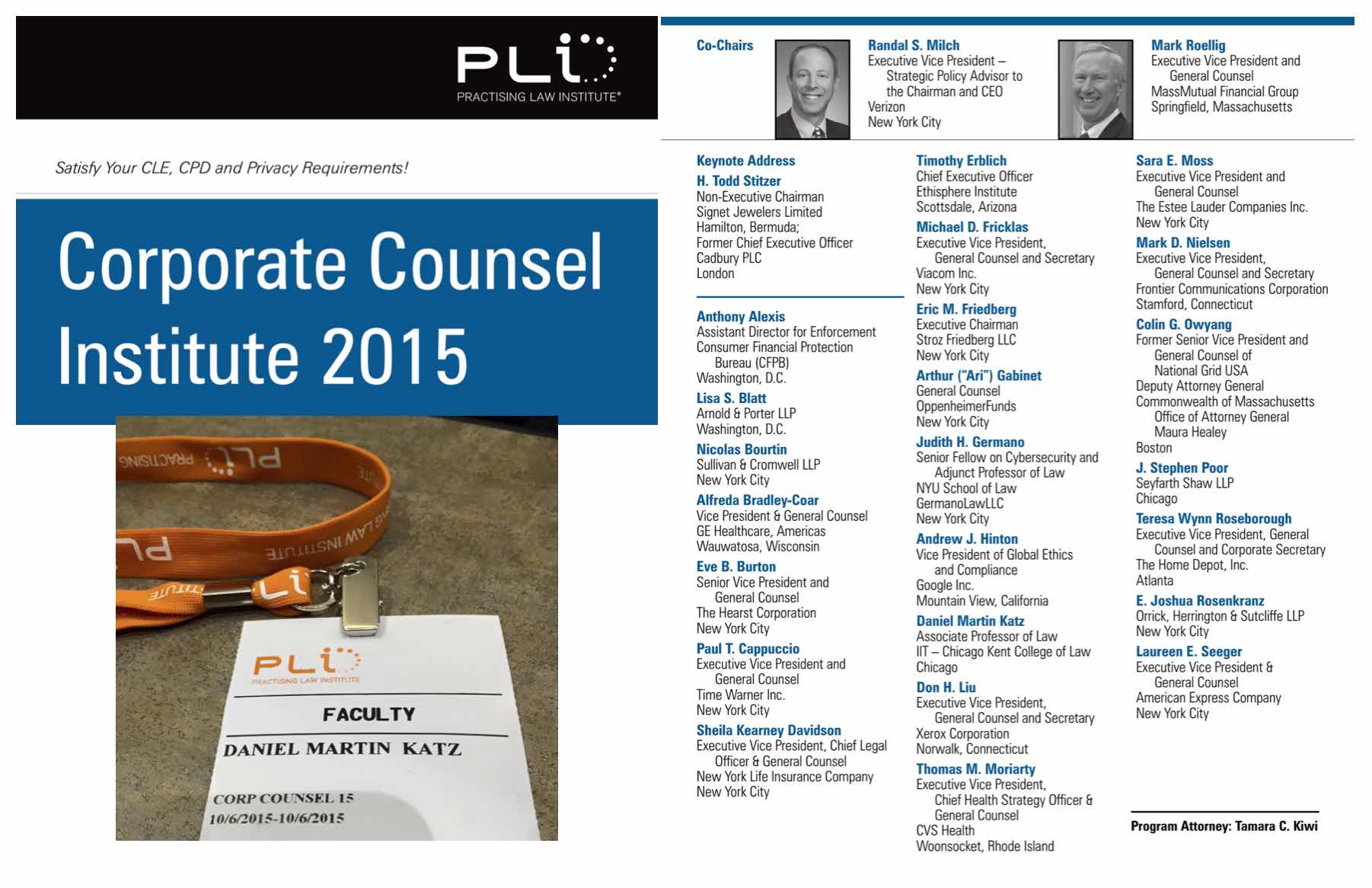 It was my pleasure to join a world class group of corporate lawyers at the 2015 PLI Corporate Counsel Institute in NYC. Thanks to Mark Roellig (Mass Mutual), Randy Milch (Verizon) and the folks at PLI for inviting me to participate!
It was my pleasure to join a world class group of corporate lawyers at the 2015 PLI Corporate Counsel Institute in NYC. Thanks to Mark Roellig (Mass Mutual), Randy Milch (Verizon) and the folks at PLI for inviting me to participate!
Machine Learning Explained (via Google’s Nat + Lo)
Pretty useful summary which is something we try to teach our students in our Legal Analytics Course (which could really be called Machine Learning for Lawyers). BTW – For those of you who emailed us, we promise to fill out the balance of the set of free, online Legal Analytics course materials in the coming months.
Econometrics (hereinafter Causal Inference) versus Machine Learning
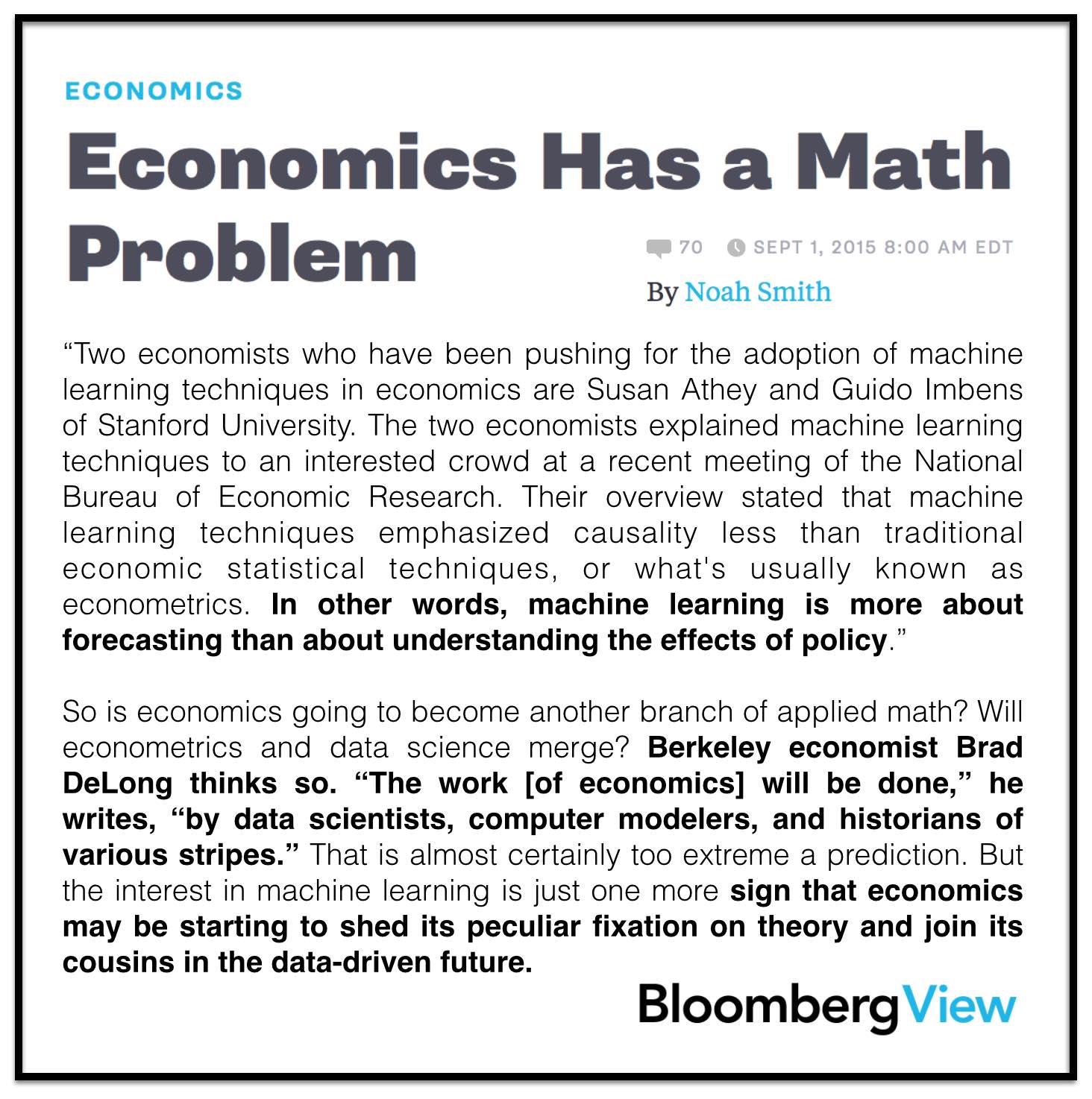 Perhaps some hyperbolic language in here but the basic idea is still intact … for law+economics / empirical legal studies – the causal inference versus machine learning point is expressed in detail in this paper called “Quantitative Legal Prediction.” Mike Bommarito and I have made this point in these slides, these slides, these slides, etc. Mike and I also make this point on Day 1 of our Legal Analytics Class (which really could be called “machine learning for lawyers”).
Perhaps some hyperbolic language in here but the basic idea is still intact … for law+economics / empirical legal studies – the causal inference versus machine learning point is expressed in detail in this paper called “Quantitative Legal Prediction.” Mike Bommarito and I have made this point in these slides, these slides, these slides, etc. Mike and I also make this point on Day 1 of our Legal Analytics Class (which really could be called “machine learning for lawyers”).

